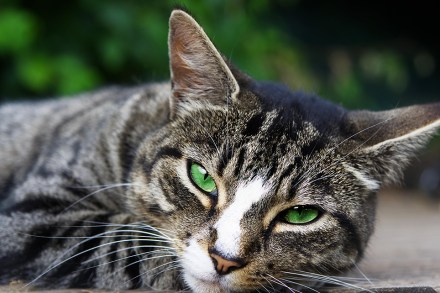A purring cat is not always contented
Large cats cannot miaow. (Lions and tigers, I mean, not moggies who have overindulged on Whiskers Meaty Selection in Gravy.) The largest feline ever to have lived was a sabre-toothed cat in South America, which weighed nearly half a tonne. Female house cats can copulate up to 20 times a day when in the mood. Male cats have a bone in their penis. Cats are green-red colour blind. There are probably more than half a billion cats alive in the world at this moment. These are gleanings merely from the footnotes of Jonathan Losos’s The Age of Cats, which is portly with information. The book, surveying cats’ evolutionary history, behavioural



